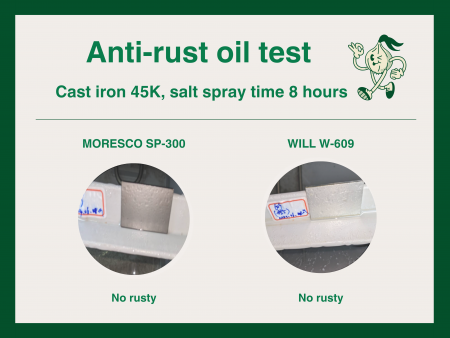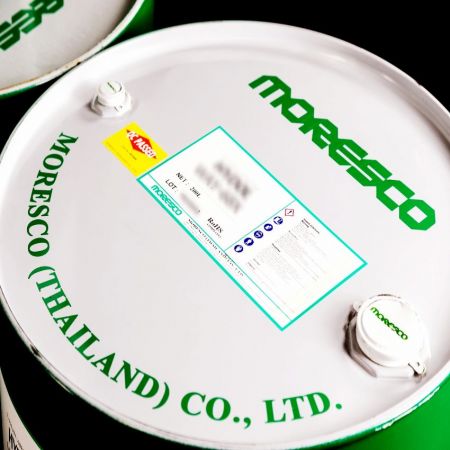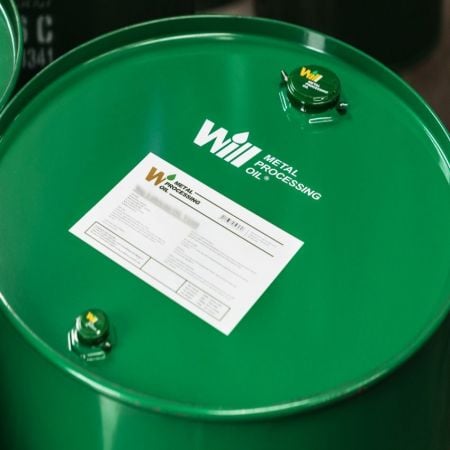How to Select the Rust Preventive Oil and Usage
Rust preventive oil, also known as rust inhibitor or corrosion inhibitor oil, is a lubricant designed to protect metal surfaces from rust and corrosion. It forms a thin protective film, preventing moisture and oxygen from contacting the metal. Commonly used before, during, and after machining, and during factory storage, rust preventive oils prevent rust formation, which can lead to equipment failure, increased power consumption, and unsalable parts. Hai Lu Jya He offers a range of rust preventive oils, from short-term to long-term options, formulated to lubricate and protect metal surfaces from atmospheric corrosion. How to select the right one? Contact us for expert advice tailored to your needs.
Selecting the right rust preventive oil
The right rust preventive oil depends on the application and transportation method. Solvent-based rust preventive oils contain volatile solvents that quickly form a protective film, ideal for short-term rust prevention and precision parts. In contrast, oil-based rust preventive oils are solvent-free, eco-friendly, and non-toxic, suitable for long-term storage and outdoor protection. They create a durable oil film on metal surfaces, preventing oxidation and corrosion, making them perfect for parts needing long-term storage or outdoor exposure.
For exports or storage in wet environments, especially for ocean shipments, use MORESCO SP-300 is the long-term rust preventive oil. MORESCO SP-300 has undergone salt spray and moisture box tests for 30 days, forming a soft, greasy, and powerful protective film. It also offers excellent water displacement and fingerprint corrosion prevention properties for semi-finished or finished parts. For secondary processing or short in-transit needs, short-term rust preventive oils like WILL W-609 are sufficient. WILL Rust Proof W-609 prevents corrosive substances from contacting the metal in a short time, ensuring effective protection.
Rust preventive oil test
Hai Lu Jya He conducts rust prevention tests using humidity chambers and salt spray methods, categorizing the rust prevention periods into short-term (0-3 months), medium to long-term (3-9 months), and long-term (12 months or more). Finished product rust prevention is divided into overseas export and domestic transport. Due to the lengthy and humid conditions of overseas shipping, workpieces are prone to rust during transit, necessitating the use of medium to long-term or long-term rust preventive oils for protection. For domestic transport and secondary processing with shorter durations, short-term rust preventive oils suffice.
Three common methods for using rust preventive oil
Rust preventive oil plays a crucial role in protecting metal workpieces. Common application methods include dipping, spraying, and brushing. Immersing and agitating the workpieces in rust preventive oil can enhance the rust prevention effect.
1. Dipping: Fully immerse the material in rust preventive oil, allowing even absorption on the surface and interior before removing and drying. This method suits various small to medium metal parts, ensuring comprehensive protection.
2. Spraying: Use spray equipment to evenly apply rust preventive oil on metal surfaces. Ideal for large areas or big equipment parts, this method provides quick coverage and saves time, especially for localized rust prevention needs.
3.Brushing: Directly apply rust preventive oil onto metal surfaces. This method is suitable for large or complex-shaped workpieces, ensuring every detail is thoroughly protected. Choosing the right rust preventive oil and using it correctly is vital for protecting metal workpieces. Proper pre-treatment and application methods can significantly extend the lifespan of metal materials, avoiding unnecessary losses and maintenance costs. Rust preventive oil application is a comprehensive protection process, ensuring each metal product is well-protected throughout its lifecycle.
Common issues with rust preventive oil application
First, inspecting the condition of the workpiece before application is crucial. Metal surfaces must be thoroughly cleaned and dried before applying rust preventive oil. Incomplete drying or delayed application can leave moisture or salts, causing corrosion. If the workpiece is already rusted, it must be derusted first; otherwise, the rust will continue to spread. Using rust preventive oil after derusting ensures better protection.
Secondly, after application, it's essential to check the coating and packaging. An overly thick oil film or uneven coating can cause corrosion, especially on large workpieces. They should remain in the dipping container long enough for even coverage. Packaging materials must be chosen according to specific needs. Poor-quality, non-compliant, or poorly sealed packaging can fail to preserve the product, leading to rust.
Using unsuitable rust preventive oils can ruin your parts. Imagine your components looking like chocolate biscuits. Hai Lu Jya He offers a range of short and long-term rust preventive oils, verified through salt spray tests (6 to 48 hours) and moisture box tests (30 days), ensuring excellent metal adherence and protection during open-air storage and transport.
Ready to enhance your machinery's performance? Contact us today to discuss your requirements or place an order. Our expert team is dedicated to finding the perfect rust preventive oil solution tailored to your needs.For more information about our products, please fill out the form below or call 04-25332210.
- Recommend Product
-
MORESCO Long Term Rust Oil SP-300
Solvent-Based Long Term Rust Preventive Oil, Rust Preventive Oil, Anti-Rust Oil, Anti Corrosion Oil, Solvent Cut Back Rust Preventive Oil
MORESCO SP-300 rust preventive oil is a high-performance medium to long-term rust preventive...
DetailsWILL Rust Preventive Oil W-609
Short Term Rust Proof Oil,Anti-Rust Oil,Anti Corrosion Oils, Solvent Cut Back Rust Preventive Oil,Corrosion Prevention Oil
WILL RUST PROOF W-609 is a unique rust preventive oil offering excellent protection against...
Details





